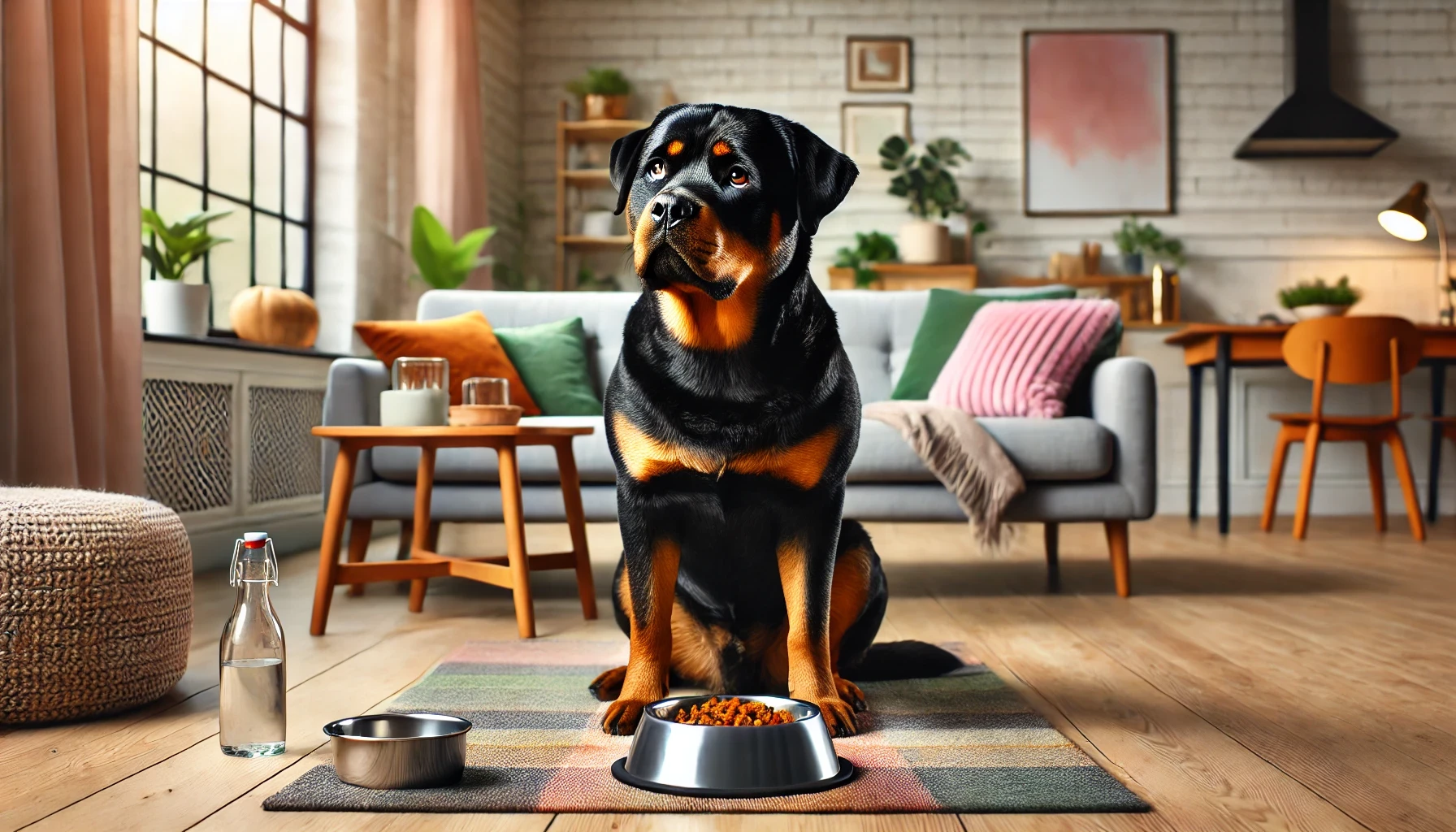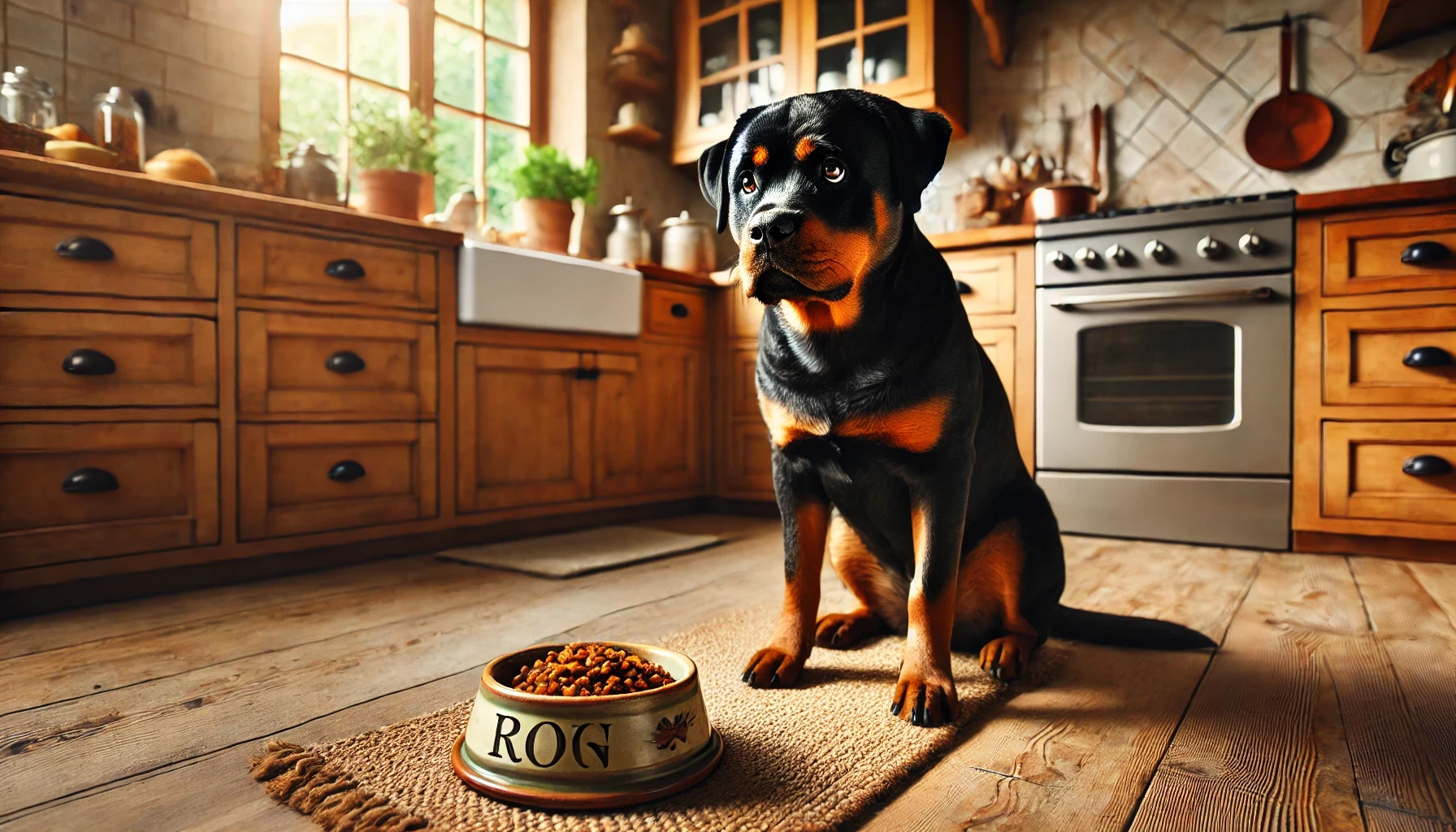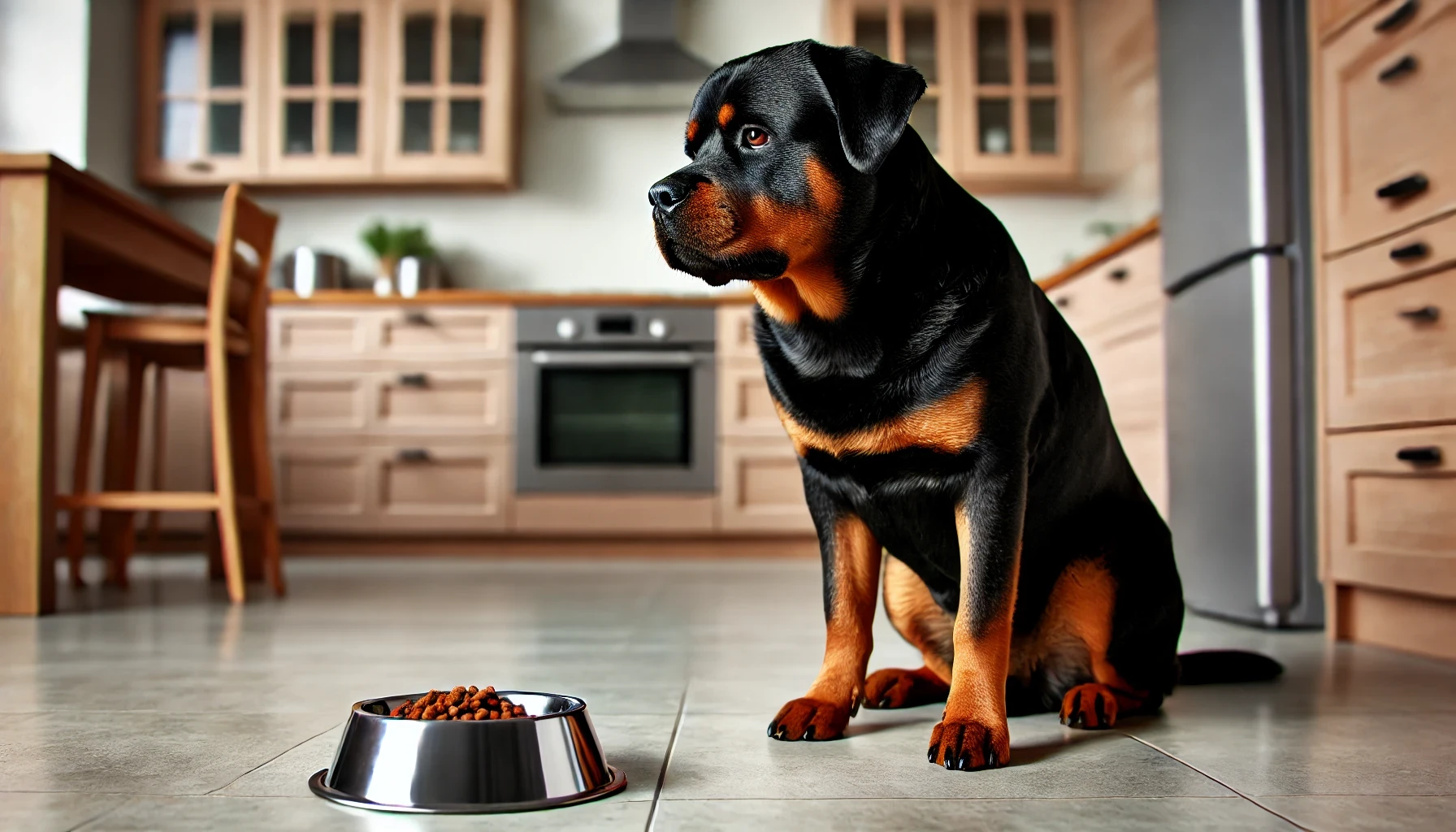On this page
Could a Sudden Change in Diet Be the Problem for Rottweilers?
Yes, sudden dietary changes can disrupt a Rottweiler’s eating habits. Rottweilers have a strong attachment to their regular food. Switching brands or flavors without a gradual transition may lead to rejection.
Why is this important? Rottweilers’ digestive systems are sensitive. Unlike more adaptable breeds like Labradors, they require slow, deliberate changes in diet to avoid gastrointestinal upset.
Gradually introduce new food over 7–10 days.
Mix small amounts of the new food with their current one.
Monitor for signs of distress, like vomiting or diarrhea.
Veterinarian's Recommendation: Dr. Karen Becker, a holistic vet, says, “Rottweilers often reject food due to hasty dietary changes. Transition slowly to ensure they accept and digest the new diet.”
Could Stress or Anxiety Be Affecting Rottweilers Appetite ?
Yes, stress or anxiety can cause a Rottweiler to lose interest in food. This breed is emotionally intuitive and thrives on routine, much like German Shepherds. Any disruptions like moving homes or changes in household dynamics can affect their appetites.
Veterinarian's Recommendation: Dr. Emily Weiss explains, “Anxiety-induced food refusal in Rottweilers is common. Providing stability and a calm environment is key to resolving the issue.”
What Does it Mean if a Rottweiler Refuses To Eat?
It means refusal to eat can indicate underlying Rottweiler health concerns. Unlike other breeds like Beagles, who may skip meals occasionally without issue, a Rottweiler's refusal is often a red flag.

Can Stale or Spoiled Food Cause a Rottweiler to Stop Eating?
Yes, stale or spoiled food might be the culprit. Rottweilers are sensitive to smell, much like hounds, and can detect even slight spoilage in their meals.
How to check food quality:
Look for discoloration or mold.
Check expiration dates.
Smell the food for unusual odors.
Prevention tips:
Store food in airtight containers.
Avoid buying large bags of kibble if your dog eats slowly.
Clean food and water bowls daily.
Veterinarian's Recommendation: Dr. Marty Goldstein states, “Ensuring food freshness is critical, as spoiled food can lead to serious health complications.”
Should You Change Your Rottweiler’s Food?
Is it time to change your Rottweiler’s food brand? Rottweilers develop food intolerances or allergies, making their usual food unappealing.
Dr. Sarah Mitchell from VetStreet advises:
"Switching to a high-quality, limited-ingredient diet can help if food allergies are the problem."
How to Switch Foods Safely
Day 1–3
🟢 75% Old Food + 25% New Food
Start with a small amount of the new food mixed with the old food.
Observe your Rottweiller’s reaction to the change.
Day 4–6
🟡 50% Old Food + 50% New Food
Gradually increase the new food portion while reducing the old food.
Keep monitoring for any digestive issues.
Day 7+
🔵 100% New Food
Fully transition to the new food if your dog adapts well to the changes.
Ensure your Rottweiller enjoys and digests the new food comfortably.
Pro Tip:
If your Rottweiller shows signs of discomfort, extend each phase by 2–3 days for a smoother transition. Always consult a vet if digestive upset persists.
Watch for signs of improvement in appetite or digestion.
Learn how to switch your Rottweiler’s diet safely and effectively with Dosty.Co.

Can too Many Treats Reduce Your Rottweiler's Appetite?
Yes, offering too many treats can reduce your Rottweiler's appetite for regular meals. Treats are often more flavorful and can lead to overindulgence, making your dog less interested in their balanced diet. Limit treats to 10% of their daily calorie intake and use them wisely for training or rewarding good behavior.
Signs Your Rottweiler May Be Overindulging in Treats:
They eagerly eat treats but consistently ignore their main meals.
Noticeable weight gain or signs of obesity.
Picky eating habits develop, making them refuse regular food.
How to Address Treat Overindulgence:
Limit Treat Intake: Ensure treats make up no more than 10% of your dog’s daily caloric intake to avoid unbalanced nutrition.
Use Treats Strategically: Reserve treats for training, special occasions, or as rewards for good behavior instead of frequent, casual use.
Choose Healthier Options: Opt for low-calorie, vet-approved treats to reduce the risk of weight gain while keeping your Rottweiler satisfied.
Reestablish Meal Importance: Gradually reduce treats and encourage eating their usual balanced dog food by making it more appealing, such as warming the food or adding dog-safe toppers.
By moderating treat use and focusing on balanced nutrition, you can help your Rottweiler maintain a healthy appetite and avoid picky eating habits.
What to Do If Your 2-Year-Old Rottweiler Refuses to Eat: Simple Solutions to Restore Their Appetite
If your 2-year-old Rottweiler refuses to eat its usual food, start by identifying the root cause, such as stale food, stress, or medical issues. Ensure the food is fresh, and consider adding variety with dog-safe toppers like boiled chicken or broth. Limit treats to avoid diminishing their appetite, and create a calm, distraction-free feeding space. If the refusal persists or is accompanied by other symptoms like vomiting or lethargy, consult your veterinarian immediately. With patience and proper care, your Rottweiler’s appetite can be restored, ensuring they stay healthy and happy.


